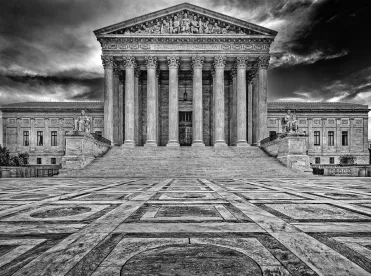BACKGROUND
After the DC Circuit’s Opinion in ACA International overturning the definition of an “automatic telephone dialing system” (“ATDS”) and ordering the FCC to come up with a new definition, the federal courts struggled with this issue, leading to contradictory results in different jurisdictions.
The Third, Seventh and Eleventh circuits adopted a narrow interpretation of the term ATDS, covering only devices that make calls or send text messages to randomly or sequentially generated phone numbers. While the Second and Ninth Circuits interpreted the term broadly, including not only devices that randomly or sequentially generate numbers, but also those with the capacity to store and automatically dial numbers.
In the petition for writ of certiorari originally filed by Facebook on October 2019, the company challenged the Ninth Circuit’s broad interpretation of the term ATDS, alleging that such interpretation rewrote the express text of the TCPA and could cover any modern smartphone. The Supreme Court agreed to review the contradicting interpretations and determine what the term ATDS actually means under the TCPA.
WHAT DOES THE DECISION MEAN?
The decision is a decisive victory for companies that use automated equipment to make calls or send text messages to communicate with their consumers. Under this decision, unless the dialing equipment uses a random or sequential number generator, businesses will not be required to obtain prior written consent from the consumer before contacting them. As Justice Sotomayor’s decision makes clear, “The statutory context confirms that the autodialer definition excludes equipment that does not ‘us[e] a random or sequential number generator.’” According to the Court, “These prohibitions target a unique type of telemarketing equipment that risks dialing emergency lines randomly or tying up all the sequentially numbered lines at a single entity.” The Court observed that, “[e]xpanding the definition of an autodialer to encompass any equipment that merely stores and dials telephone numbers would take a chainsaw to these nuanced problems when Congress meant to use a scalpel.”
In short, under the Supreme Court’s interpretation, equipment that merely dials from a list, and does not incorporate the use of a random or sequential telephone number generator is not bound by the TCPA’s requirements to obtain prior express consent before making calls or sending text messages using an ATDS. (As the Court notes, however, the TCPA’s prior express consent requirements still “prohibits calls using ‘an artificial or prerecorded voice’ to various types of phone lines, including home phones and cell phones, unless an exception applies.”)
WHAT’S NEXT?
The Court’s opinion only concerns the TCPA’s autodialer restriction, meaning that many other statutory restrictions—including on pre-recorded or artificial voice calls, and telephone solicitations to numbers on the National Do Not Call Registry—remain intact. Moreover, while the Supreme Court’s decision is an important victory that returns the TCPA to Congress’s original intent, we must caution that the Supreme Court may not have the final word on this matter. While the Supreme Court’s interpretation of the current law is now the “law of the land,” Congress retains the power to change the law. Given the public sentiment about robocalls and recent actions, such as the bi-partisan adoption of the TRACED Act, which was meant to enhance enforcement of the TCPA, our perception is that the Supreme Court’s decision may well prompt further legislative reforms that could limit the longevity of the Supreme Court’s decision.



 />i
/>i

